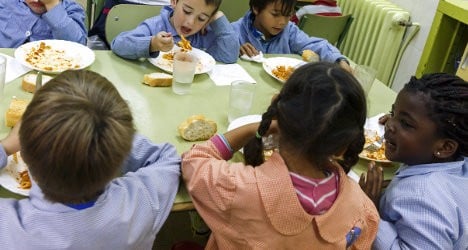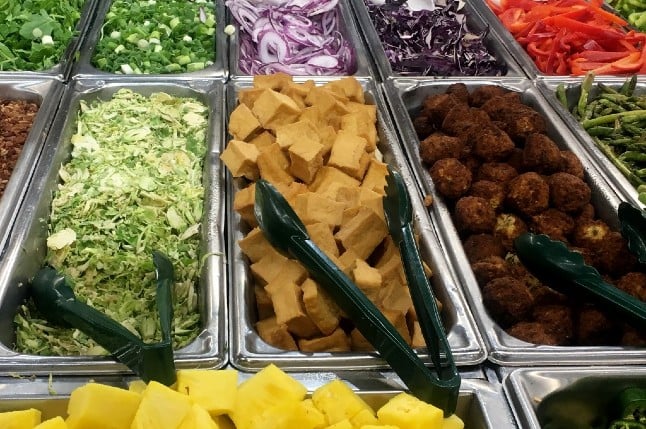To serve or not to serve pork in the canteens of France's secular state schools?
As a new school year begins, the divisive issue has once again come to the fore as mayors from three towns have banned non-pork options in canteens to respect the country's strict divide between education and religion, triggering accusations of discrimination.
Enter Yves Jego, a lawmaker who wants to introduce a draft bill making vegetarian meals obligatory in schools as a pragmatic way of bypassing secularity rules and accommodating Jews and Muslims who do not eat pork, or Hindus, many of whom shun meat in general.
“Can we force a Catholic child to eat meat on Good Friday because nothing else is available, or a Jewish or Muslim kid to eat pork?,” the lawmaker from the centrist UDI party asks on his online petition, which has garnered more than 123,000 signatures so far.
“I will… submit a draft bill to make vegetarian menus obligatory in all canteens as an alternative to daily menus to allow those who do not want meat or fish, whatever the reason, to eat healthily.”
'Just don't eat pork'
The debate over what to serve children in school canteens has raged on and off for years in France, which prides itself on its 1905 law separating the state and religion, but also has Europe's largest Muslim and Jewish populations.
There are no overarching guidelines that govern what should be put on children's plates and it is up to more than 34,000 mayors around the country to take their own decisions.
Many schools offer an alternative when pork, or more generally meat, is served to tacitly cater to religious requirements but halal or kosher meals are shunned as going against secularity.
The only city that serves up halal meals is Strasbourg in the northeastern region of Alsace, which was under German rule in 1905 when France voted in favour of the separation of state and religion and is therefore not bound by secularity laws.
For Isabelle Maincion, who looks after the school meal portfolio at the Association of French Mayors, there is no debate to be had on whether to serve pork or not, let alone halal or kosher.
“We have to respond to regulations currently in place today, which are to serve well-balanced meals,” she says.
“We don't have to worry about any other demands at school, which is secular. “Pork is not served up that often, and parents know it. The days when there is pork, children just don't eat pork, and parents make up for the lack of protein in the evening, it's that simple.”
Deserting public schools
Not so for Francois Pupponi, the mayor of the Paris suburb of Sarcelles, known for its ethnic diversity and large Jewish population.
“Those who have such extreme positions… don't understand that they are achieving the exact opposite of what they are looking for,” he said.
“They will end up with a secular public school, but there will be no-one left. All those who are religious will leave, and public schools will no longer be a place where people mix, a place of dialogue and education for all.”
Pupponi said many Jewish children now attended private schools due in part to the lack of kosher meals in public establishments.
“I have parents who have told me they want to put their children in public school, but they want them to eat kosher. And today, we're starting to see the same phenomenon with Muslims.”
So what about the vegetarian option that Jego is championing?
Too costly, tough to create well-balanced menus and children will probably avoid them, say critics.
But the central city of Saint-Etienne has served them up since January after new mayor Gael Perdriau realised that some children did not eat all their food for religious reasons.
The additional meals come at no extra cost for parents or authorities.
Now, 15 percent of school children pick the vegetarian option, he says, which on a typical day might consist of a lentil salad, omelette with carrots and rice, cheese and fruit.
“This solution addresses different issues — vegetarian or religious issues — without getting into debates that I find a little unhealthy, where people argue that if you don't like a certain type of food, then don't eat it,” Perdriau said.



 Please whitelist us to continue reading.
Please whitelist us to continue reading.
Member comments